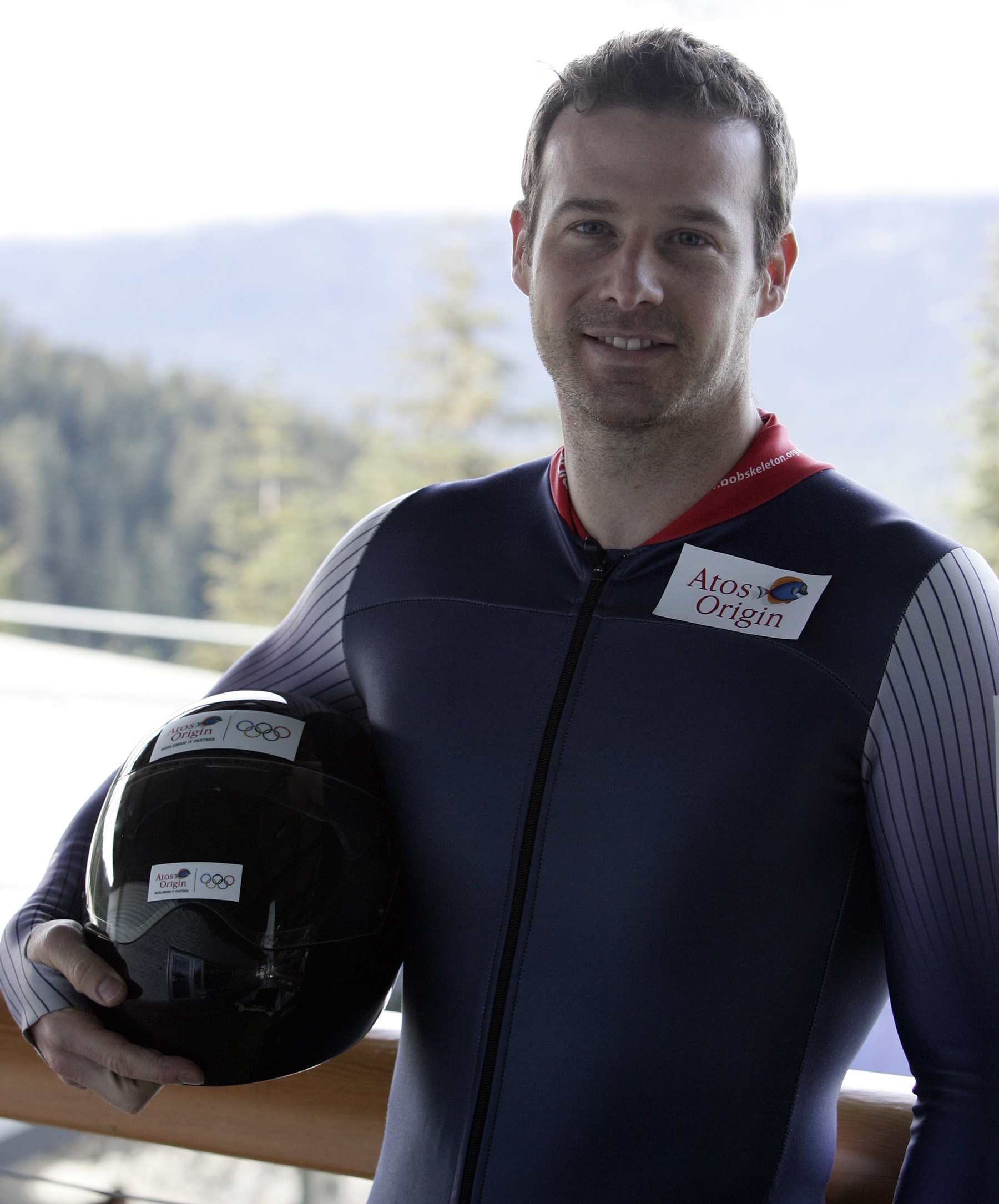
EDITOR’S NOTE: BPSports editor Tim Ellsworth is in Vancouver for Baptist Press’ coverage of the Winter Olympics, with credentialing from the U.S. Olympic Committee. Ellsworth will be writing about various Christian athletes and how they fare in their respective competitions. Additional reports will be provided by a media team from the Southern Baptist North American Mission Board on ministry-related initiatives in conjunction with the Winter Games.
WHISTLER, British Columbia (BP)–Adam Pengilly stood at the top of the track, bracing himself. A former bobsledder, he was no stranger to the icy slide and had absorbed its best licks many times. One bobsled crash left him with a hole in his lung. Another one gave him a nasty scar on his back from an ice burn.
But this time, instead of speeding down in a bobsled with a team, he’d be by himself — on his stomach, head first, on a skeleton sled.
“The first run that you ever take is a pretty scary time in your life,” Pengilly said. “And when you know what’s coming, the second one’s even worse.”
The first couple of years of skeleton racing were painful ones for Pengilly, but he remained an optimist, pushing forward and telling himself, “It will get better. It will get better.”
Indeed, it did. Pengilly, of Great Britain, became one of his country’s top skeleton racers and is representing the United Kingdom in the event in the Vancouver Olympics. He competes Feb. 18 and 19, with two runs each day.
In some ways, Pengilly’s spiritual journey has mirrored what happened to him in skeleton, with some rough spots along the way. But he now finds himself walking more closely to Christ than ever.
“Adam Pengilly is deeply committed to Christ,” said Derek Spain, pastor of Lake Placid (N.Y.) Baptist Church and a chaplain at the Olympic Village in Whistler, where many of the competitions take place. “He’s a guy that walks with the Lord, reads the Word and spends time in prayer.”
Pengilly’s devotion to the Lord began when he was young. His parents became Christians and were baptized when Pengilly was a boy.
“They explained the Gospel to me in a simple manner, relating to my age, but certainly enough to understand sin and repentance and belief in Christ as my Lord and Savior,” Pengilly said. “I asked Mum if I could become a Christian, and that’s how it started, really.”
He drifted away from the Lord for a while as a teenager and college student, choosing to live for himself over anyone else. But one night at college he had an awakening of sorts. He had spent a night out with his friends, enjoyed a “good time” and realized the utter futility of it. That, he says, is when he started to look to God again.
“I knew it was the truth and I knew in my heart that it was absolutely right, and so since then it’s been a walk generally in the right direction,” he said.
His faith has grown strong in recent years after he moved to Bath, where he found a good church (an independent Baptist congregation) with solid biblical teaching and a group of young male Christian friends he encourages and is encouraged by.
Along the way, Pengilly got involved with bobsledding. As a track and field athlete in high school, he had a teacher who was a bobsledder and recruited him for the sport. Pengilly coached bobsledding during the 2002 Olympics in Salt Lake City but realized he still wanted to compete.
Competing in bobsledding, however, is difficult, especially in the United Kingdom where the sport is heavily geared toward the military. It’s also expensive. So Pengilly began considering the sister sport of skeleton.
“It was a lot cheaper, a lot more accessible,” he said. “The program was better. I could buy my own sled, throw it in the car and drive around Europe if I wanted to.”
Skeleton racing is certainly intimidating, racing down the track at speeds of nearly 90 miles an hour. But is it more intimidating than bobsled racing?
“It depends who’s driving the bobsled,” Pengilly said.
His competition schedule regularly takes him to Lake Placid, which has one of only two bobsled/luge/skeleton tracks in the United States. That’s where Pengilly got to know Spain, who ministers to many of the athletes training and competing in Lake Placid.
“Every time he comes to Lake Placid he joins us for Bible study, prayer time, worship, whatever he can do,” Spain said of Pengilly. “He is definitely part of our church family when he’s in town.”
Pengilly hasn’t had a great racing season this year, describing it as the worst season of his career. He had knee surgery in the summer and was sidelined when his recovery took longer than expected. The knee trouble flared up again later in the season and hobbled him for nearly a week.
Though his performance has picked up in recent weeks, his best finish so far in the season is still only 10th place in the World Cup, which is a long way from medal contention. But in Vancouver, Pengilly wants only to do his best, and to go about his sport as if he’s working for the Lord and not for men.
“My goal is to go in there and have four strong runs,” he said. “If I do that, I’ll come away happy, whether that puts me fifth or 15th.”
–30–
Tim Ellsworth, in addition to his role as BPSports editor, is director of news and media relations at Union University in Jackson, Tenn. For additional BP stories from the Winter Olympics, go to http://www.bpnews.net/BPCollectionNews.asp?ID=166. For Tim Ellsworth’s blog from Vancouver, go to http://www.bpnews.net/blog/.

















